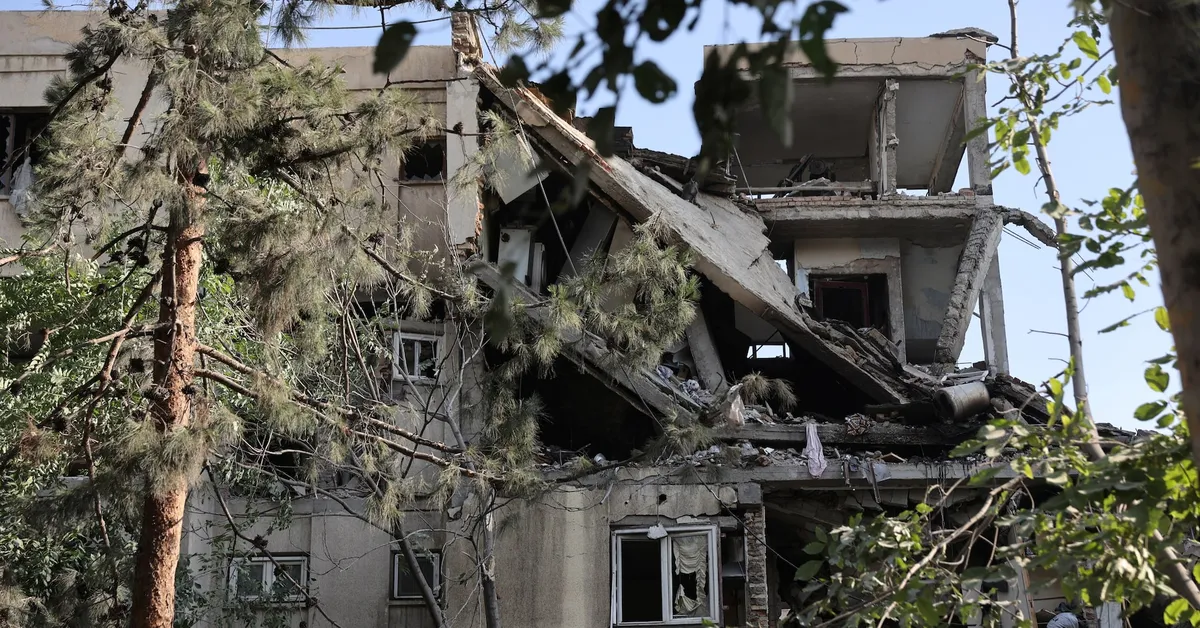
On June 14, a significant military operation by Israel targeted Iran's nuclear program, with the apparent intention of severely disrupting Tehran's capabilities to develop an atomic weapon. However, the scope of the attacks and the specific targets chosen suggest that Israel may have a more ambitious goal: the potential toppling of Iran's regime. This analysis comes from experts who believe the strikes were designed not only to impact Iran's military infrastructure but also to undermine the credibility of its leadership.
The Israeli military strikes, which occurred early on a Friday, were aimed at crucial sites, including nuclear facilities, missile factories, and key military figures within Iran's command structure. The intention behind these attacks appears to be twofold: to delay Iran's nuclear ambitions and to create conditions that could lead to instability within the Iranian leadership, as noted by Michael Singh from the Washington Institute for Near East Policy.
Singh remarked, "One assumes that one of the reasons that Israel is doing that is that they're hoping to see regime change." He emphasized that the relatively low civilian casualties during the initial strikes could indicate a broader strategy focused on encouraging the Iranian populace to rise against their government.
In a video address following the strikes, Israeli Prime Minister Benjamin Netanyahu directly addressed the Iranian people, asserting that the Islamic regime has oppressed them for almost 50 years. Netanyahu stated, "As we achieve our objective, we are also clearing the path for you to achieve your freedom." His comments suggest that Israel views this military action not just as a defensive measure, but as a catalyst for potential change within Iran.
Despite the extensive attacks on Iranian military and scientific establishments, experts caution against overestimating the likelihood of immediate regime change. Iran's long-standing hostility toward Israel, deeply rooted in national sentiment among its majority-Shi'ite population, poses significant obstacles. As Michael Singh pointed out, "No one knows what conditions would be required for an opposition to coalesce in Iran," highlighting the complexities of fostering a political shift in Tehran.
The military operation is described as the first phase of a prolonged campaign. Analysts anticipate that Israel will persist in targeting critical components of Iran's nuclear infrastructure to hinder Tehran's progress toward acquiring nuclear weapons. However, it is essential to note that while Israel is taking steps to delay Iran's nuclear program, experts agree that complete dismantlement of these facilities is unlikely without significant external support.
The Israeli government has expressed that the future of Iran should be determined by its own people. An Israeli embassy spokesperson stated, "As a democratic country, the State of Israel believes that it is up to the people of a country to shape their national politics." Although Netanyahu has called for a change in Iran's government, the U.S. response under the Trump administration has been more cautious, showing support for Israel while avoiding explicit calls for regime change.
While Israel may desire to see a shift in Iran's leadership, analysts warn of the unpredictable consequences that could follow. Jonathan Panikoff, a former U.S. deputy national intelligence officer, cautioned that removing Iran's leaders does not guarantee a less hostile successor. "History tells us it can always be worse," he stated, suggesting that any transition could lead to even more hardline leadership.
Israel's recent military actions against Iran underscore a complex interplay of military strategy and political aspirations. As the situation evolves, the world watches closely to see how these developments will shape the future of the Middle East and the ongoing tensions between Israel and Iran.